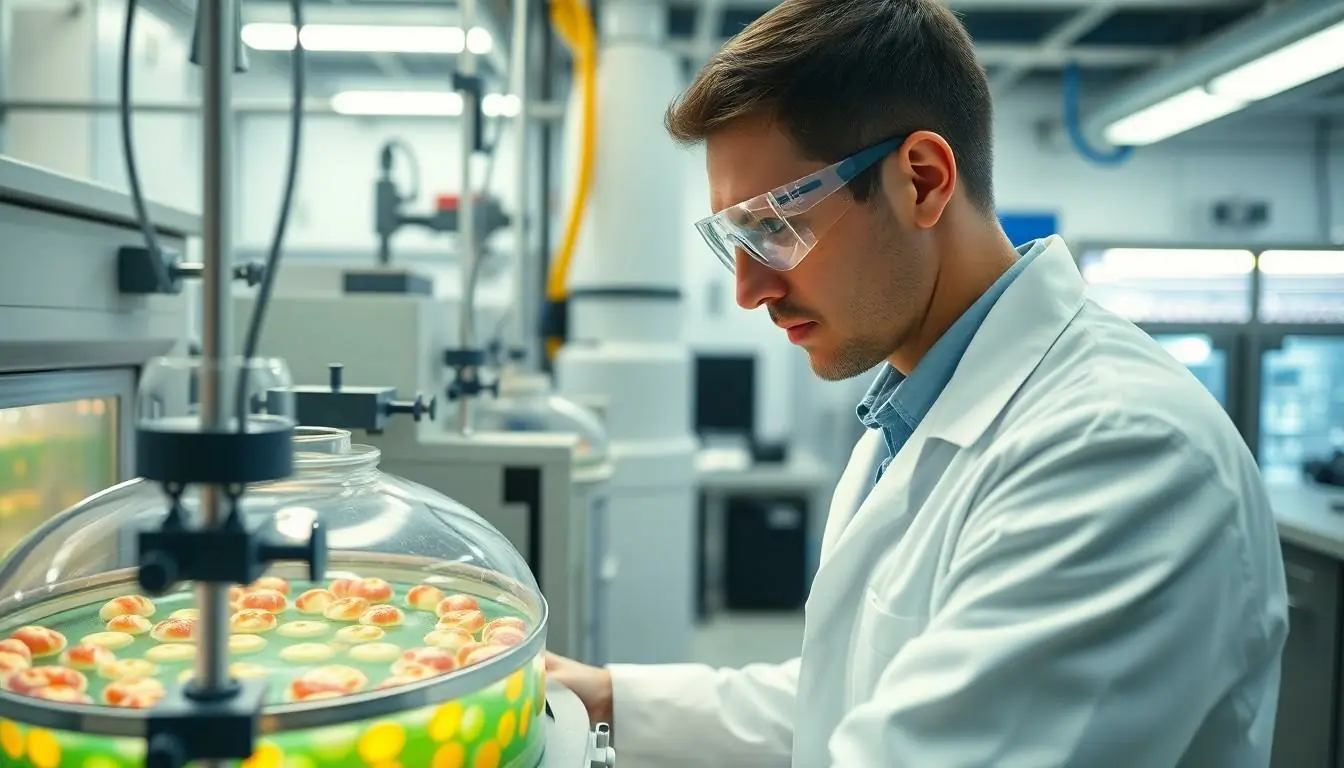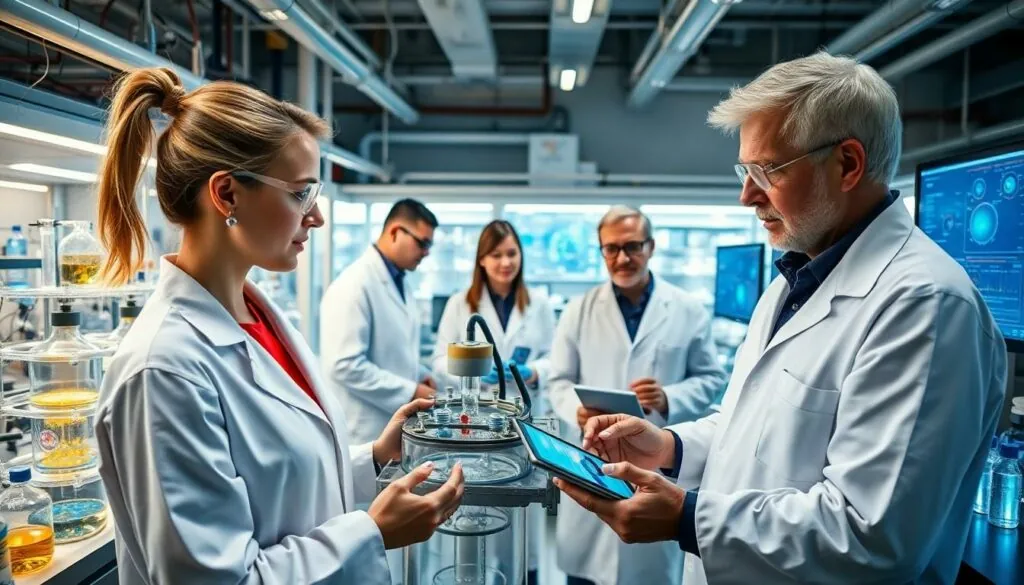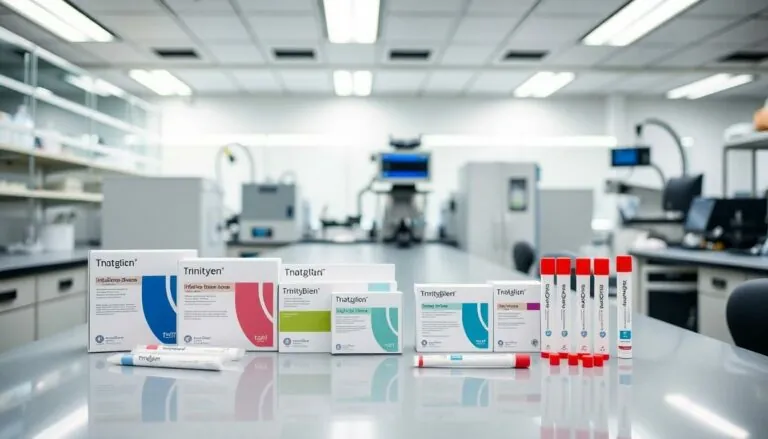Table of Contents
ToggleIn a world where science fiction often meets reality, biotech manufacturing stands at the forefront of innovation. This fascinating field combines biology and technology to produce everything from life-saving drugs to sustainable fuels, proving that the future isn’t just bright—it’s downright glowing. Imagine a factory where living cells work harder than your average coworker, churning out products that can change lives.
But don’t let the lab coats and pipettes fool you; biotech manufacturing isn’t just for the nerds in the back of the classroom. It’s a thriving industry that’s reshaping economies and pushing the boundaries of what’s possible. With the right mix of creativity and precision, biotech is turning the impossible into the routine. Buckle up as we dive into this exciting world where biology meets manufacturing and discover how it’s revolutionizing industries one cell at a time.
Overview of Biotech Manufacturing
Biotech manufacturing combines biological processes with technology to produce essential products. Industries leverage these processes to create pharmaceuticals, genetic materials, and industrial enzymes. Drug development is a significant focus, where biopharmaceuticals emerge through complex biological systems.
Production methods include fermentation, cell culture, and protein purification. Fermentation fosters the growth of microorganisms, while cell culture involves the growth of cells in controlled environments. Protein purification refines proteins from complex mixtures, ensuring high purity and efficacy.
Regulatory compliance plays a vital role in biotech manufacturing. Organizations adhere to stringent guidelines set by authorities like the FDA and EMA to ensure product safety and quality. Quality control measures are crucial, including regular testing and documentation throughout the production process.
Sustainability also marks a critical aspect of biotech manufacturing. By utilizing renewable resources, this sector minimizes environmental impact. Innovations in bioprocessing promote energy efficiency and reduce waste. Many companies adopt green chemistry principles, enhancing both product sustainability and performance.
Investment in research and development drives advancements in this field. Companies focus on precision medicine, personalized treatments, and novel therapies, catering to diverse patient needs. Collaborative efforts among academia, industry, and government entities foster innovation, positioning biotech manufacturing as a leader in the global market.
Applications extend beyond healthcare to agriculture and environmental sectors. Biotech contributes to the development of genetically modified crops with enhanced traits, improving food security. Environmental biotech involves bioremediation, where organisms cleanse contaminated environments.
As the landscape evolves, biotech manufacturing continues to revolutionize industries through its innovative approaches and applications.
Key Technologies in Biotech Manufacturing

Biotech manufacturing relies on several key technologies to produce essential products. Techniques like cell culture and fermentation play crucial roles in developing pharmaceuticals and biofuels.
Cell Culture Techniques
Cell culture techniques form the backbone of biopharmaceutical production. This method involves growing cells in controlled environments to produce proteins, antibodies, and vaccines. Various types of cells, such as mammalian, bacterial, or yeast cells, facilitate the production of specific compounds. Well-optimized culture conditions, including temperature, pH, and nutrient supply, enhance cell growth and product yield. Innovations in bioreactor designs accelerate production rates, enabling scalability from laboratory to industrial levels. The use of automated systems increases precision and consistency in cell culture processes.
Fermentation Processes
Fermentation processes convert raw materials into valuable biological products. Microorganisms like bacteria and yeast are employed to metabolize substrates, leading to the production of enzymes, acids, and alcohols. Controlled fermentation environments, including agitation and oxygen levels, optimize growth conditions and improve yields. Different fermentation types, such as batch and continuous processes, accommodate various production needs. Real-time monitoring technologies enhance the ability to track fermentation parameters, ensuring product quality. Additionally, sustainable practices in fermentation minimize waste and leverage renewable resources.
Challenges in Biotech Manufacturing
Biotech manufacturing faces significant challenges that impact product development and delivery.
Regulatory Hurdles
Regulatory hurdles add complexity to biotech manufacturing processes. Authorities such as the FDA and EMA impose strict guidelines to ensure safety and efficacy. Compliance with these regulations can lead to delays and increased costs. Manufacturers often encounter lengthy approval timelines for new products, which can hinder innovation. Companies must also navigate a landscape filled with changing regulations and standards in various regions. Frequent consultations with regulatory experts become essential to maintain compliance and streamline the approval process.
Quality Control Issues
Quality control issues present another major challenge in biotech manufacturing. Consistency in product quality is critical for biopharmaceuticals and genetically engineered products. Variability in raw materials and manufacturing processes can lead to significant discrepancies in final products. Manufacturers must implement robust quality assurance systems to monitor every stage of production. Advanced technologies, such as real-time analytics and automated testing, help mitigate these risks. However, maintaining a high standard of quality requires ongoing investment in training and technology updates.
Future Trends in Biotech Manufacturing
Biotech manufacturing is evolving rapidly, driven by technological advancements and a focus on sustainability. Future innovations shape the industry, enhancing efficiency and reducing environmental impact.
Automation and AI
Automation will play a pivotal role in streamlining biotech manufacturing processes. Robotics facilitate precise tasks, from cell culture to harvesting, reducing human error and boosting productivity. AI enhances decision-making, enabling real-time data analysis and predictive modeling. Machine learning algorithms optimize production schedules and resource allocation, minimizing waste. Increasing integration of automated systems allows for scalable solutions in drug development, ensuring consistent quality throughout production runs. Improved efficiency in operations translates into reduced costs and faster time-to-market for new therapies.
Sustainability Practices
Sustainability practices will become core to biotech manufacturing strategies. Use of renewable energy sources significantly lowers the carbon footprint of production facilities. Biodegradable materials replace traditional plastics in packaging, reducing environmental waste. Incorporation of water recycling systems ensures efficient use of resources in manufacturing processes. Green chemistry principles guide the development of eco-friendly products, minimizing harmful substances. As companies strive for sustainability, consumers and regulatory bodies increasingly value environmentally responsible practices, shaping market trends and influencing investment decisions.
Biotech manufacturing stands at the forefront of innovation and sustainability. Its ability to merge biological processes with cutting-edge technology is reshaping industries and enhancing lives. As the sector continues to evolve with advancements in automation and AI, its commitment to sustainability will play a crucial role in meeting global demands.
The challenges of regulatory compliance and quality control will persist but can be navigated through ongoing investment in technology and expertise. The future of biotech manufacturing promises to deliver even more groundbreaking solutions, driving progress across healthcare, agriculture, and environmental sectors. Embracing these developments will not only benefit businesses but also contribute to a healthier planet and society.






